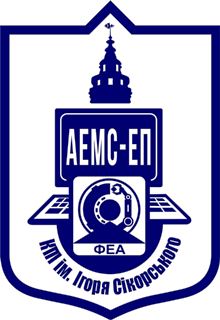| Subject / Educational component | Automation systems |
| Educational level | First (Bachelor’s degree) |
| Year of study, semester | 2th year, 4th semester; 3th year, 5th semester; |
| Number of ECTS credits | 330 hours in total
11 credits of ECTS |
| Language of study | English |
| Department | Automation of Electromechanical Systems and Electrical Drive |
| Assumed knowledge and prerequisites | General knowledge of mathematics and physics, compulsory studied module «Logic Circuits Synthesis» |
| The scope of the course | The subject of the discipline “Automation Systems” is the study of stages of development and construction of industrial automation systems based on programmable logic controllers and programmable logic integrated circuits, as well as their programming languages and features of use. |
| Rationale | Industrial automation systems are widely implemented in all industries. The main component of the technical implementation of any automation task is the use of programmable logic controllers and their subclass – programmable logic relays, which are programmed in the language of relay logic, which greatly simplifies the transition from outdated relay circuits to programmable logic. Modern digital devices, in turn, are built using programmable logic integrated circuits. Therefore, the training of specialists who will have skills in the development, synthesis and programming of industrial automation systems is an urgent task in a rapidly developing industry. |
| Learning outcomes
|
– apply programming skills in the language of relay logic to convert logic equations into a program for a programmable logic relay or field programmable logic devices;
– to transform known relay circuits for compiling programs in the language of relay logic and functional block diagram language; – to transform class H relay circuits into class P for compiling programs in the language of relay logic and functional block diagram language; – solve automation problems for the technical implementation of automation circuits using modern programmable logic relays and field programmable logic devices; – to choose modern equipment for designing automation systems. |
| Competencies and skills
|
The acquired knowledge can be applied by future engineers in the design of automation systems, their development and programming using modern digital control devices: programmable logic controllers and field programmable logic devices used in all areas of industrial automation. |
| Instructional Materials: | Syllabus, ratings, textbook (electronic edition). |
| Mode of delivery: | Lectures, practical classes, coursework, laboratory practicum |
| End–of–semester control: | Exam
Exam |










